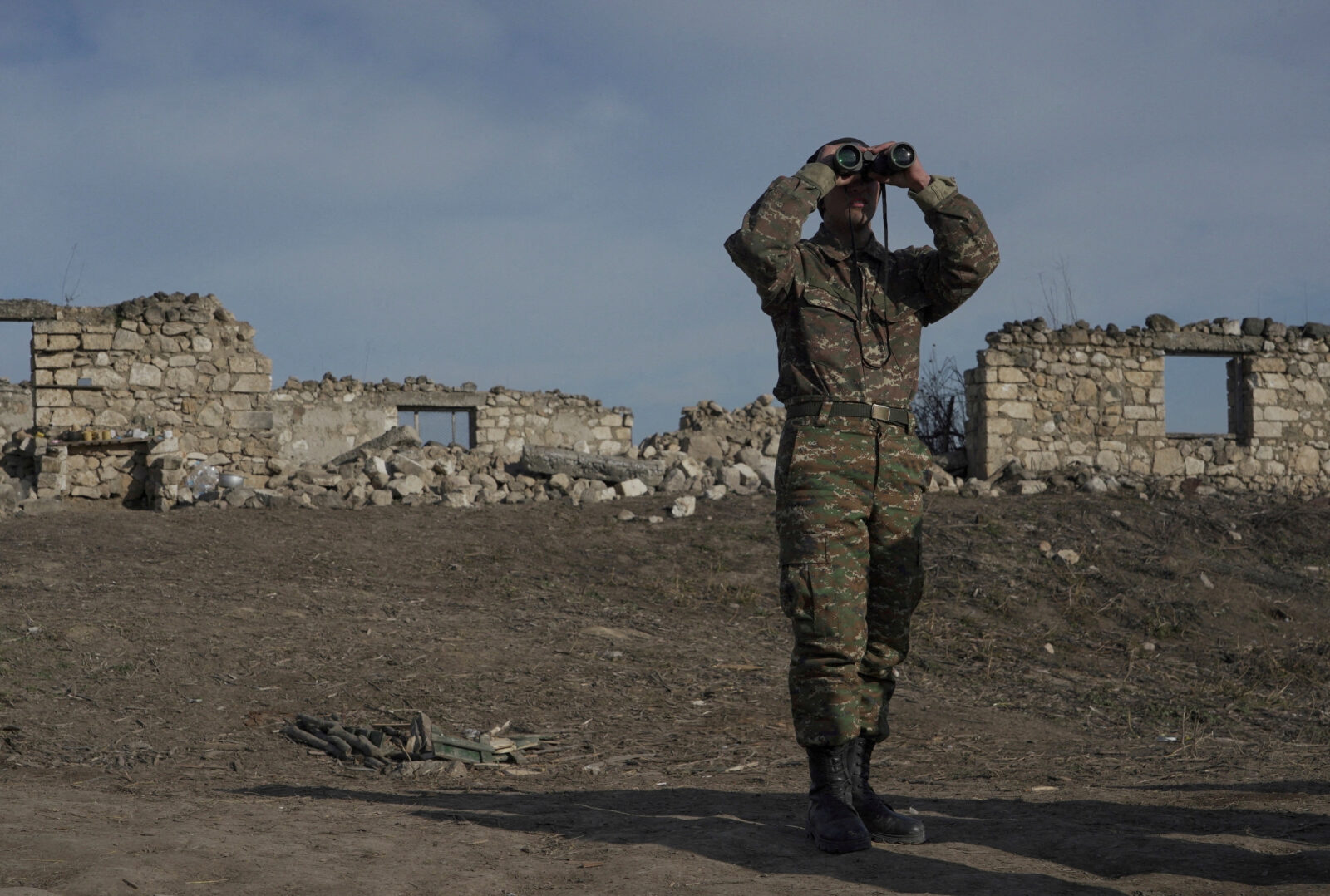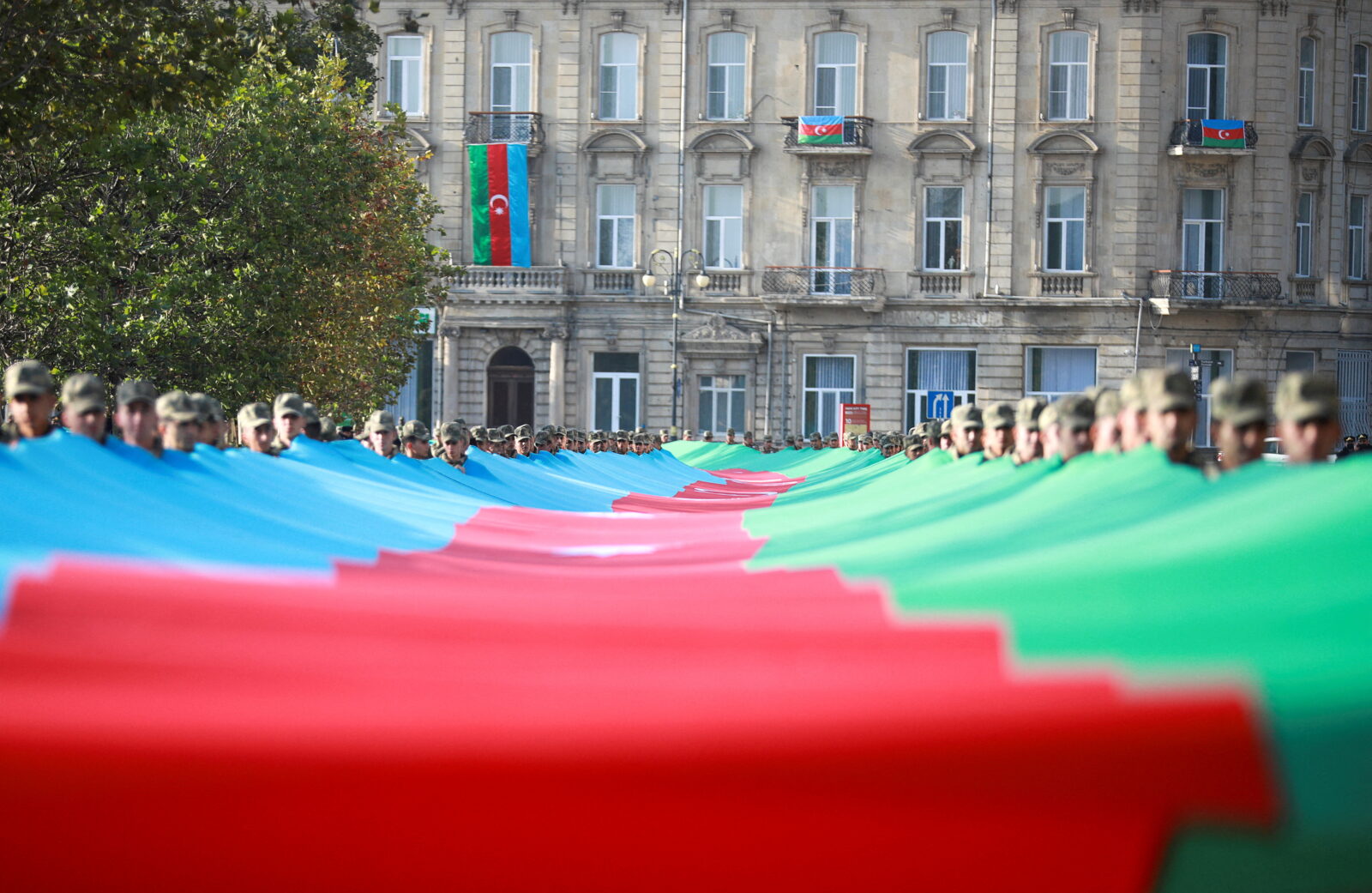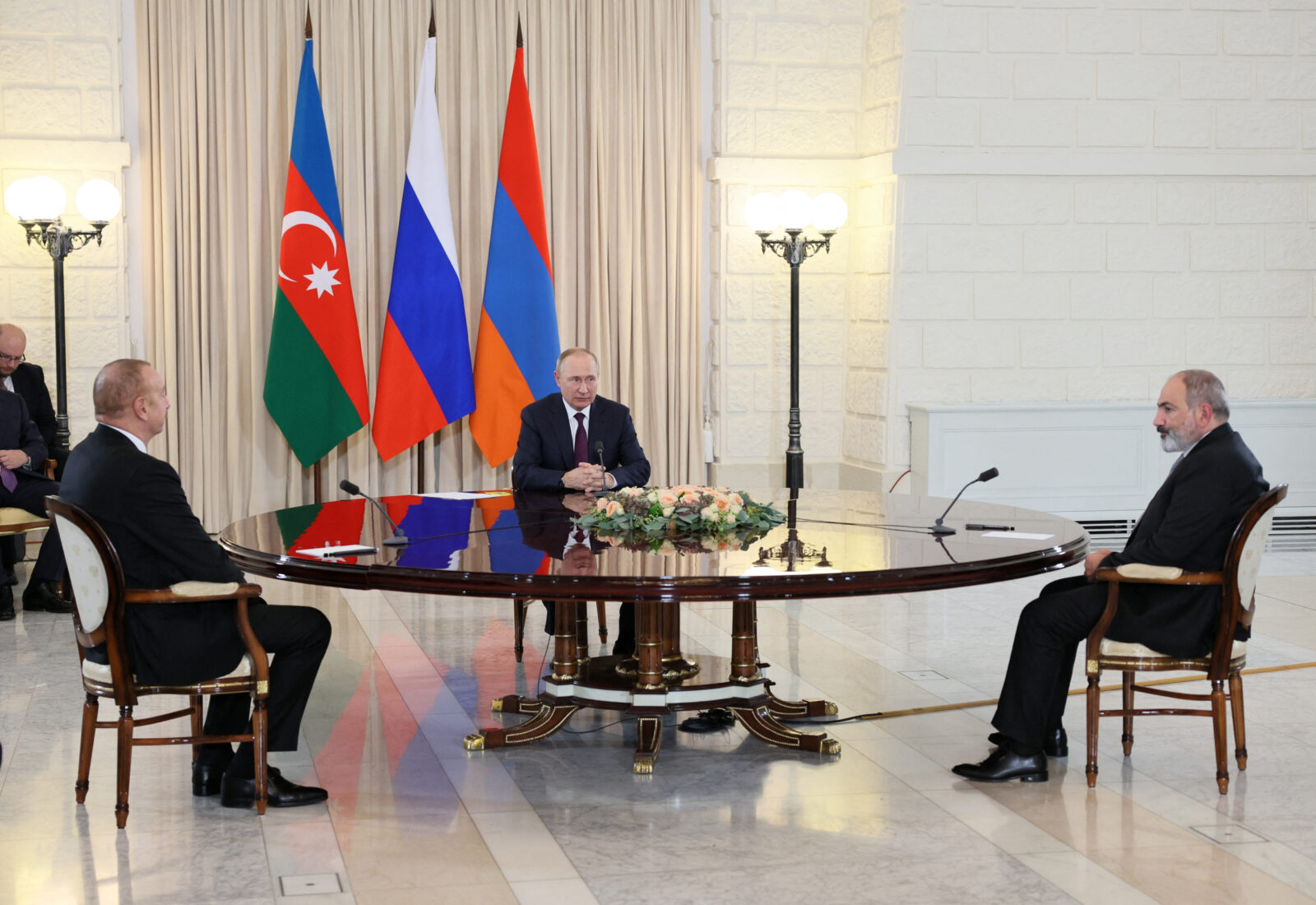Armenia hopes to sign peace agreement with Azerbaijan in near future
 Photo showing Pashinyan-Aliyev's meeting in 2022. (Collage by Mehmet Akbas/Türkiye Today)
Photo showing Pashinyan-Aliyev's meeting in 2022. (Collage by Mehmet Akbas/Türkiye Today)
Armenia is hopeful that a peace agreement with Azerbaijan can be signed before the COP29 climate change conference in Baku, scheduled for November 11-22.
Armenian President Vahagn Khachaturyan expressed optimism about the signing of 16 articles from the peace deal during a speech on the sidelines of the Hamburg Sustainability Conference.
Khachaturyan stated, “Had it been only us, we would sign it right now, today. But we do hope we will reach that point sooner or later,” referring to Armenia’s readiness to finalize the agreement.

Ongoing peace talks and negotiations
The peace negotiations follow Azerbaijan’s military victory in the 2020 Nagorno-Karabakh war, which ended with Azerbaijan regaining control over the region that had been under Armenian occupation for nearly 30 years. The two countries have been engaged in peace talks for over a year, aiming to resolve long-standing issues stemming from the conflict.
According to Khachaturyan, Armenia and Azerbaijan are still negotiating several provisions of the peace agreement. While 16 articles are close to being signed, a few others remain under discussion. These include internationally accepted principles for establishing diplomatic relations and mechanisms for continuing negotiations.
Azerbaijan, however, has emphasized that any peace treaty must exclude references to the independence of Nagorno-Karabakh, which was a source of contention between the two nations during the conflict. Earlier this year, Armenia withdrew from several Azerbaijani villages as part of the ongoing peace process.

Challenges and tensions
The negotiations have not been without challenges. Both countries have accused each other of stalling the peace process, and tensions have remained high. In a recent speech, Azerbaijani President Ilham Aliyev accused Armenia of rearming and preparing for further hostilities, warning Yerevan to “stop these dangerous games.
Meanwhile, Armenia has expressed its commitment to a peaceful resolution, hoping the peace agreement will help stabilize the region and pave the way for lasting peace.

Türkiye-Armenia relations and border talks
Khachaturyan also addressed the ongoing talks with Türkiye, Azerbaijan’s key ally, during his speech. He indicated that discussions between Armenia and Türkiye are progressing well, with a proposal under consideration to open the border between the two countries for third-country citizens and those holding diplomatic passports.
“This will be a signal that real diplomatic relations have become a reality,” Khachaturyan said. Türkiye severed diplomatic ties with Armenia in 1993, in support of Azerbaijan during the Nagorno-Karabakh conflict, but recent efforts have been made to normalize relations between Ankara and Yerevan.

The potential border opening would be a significant step forward in restoring diplomatic ties between the two countries, further contributing to peace and stability in the South Caucasus region.



